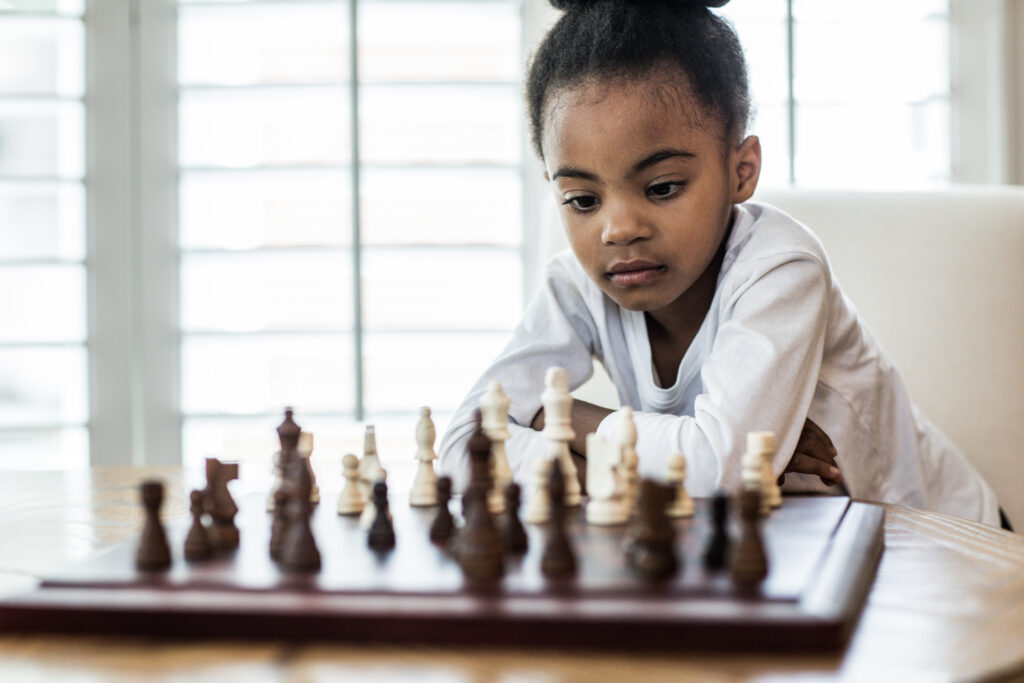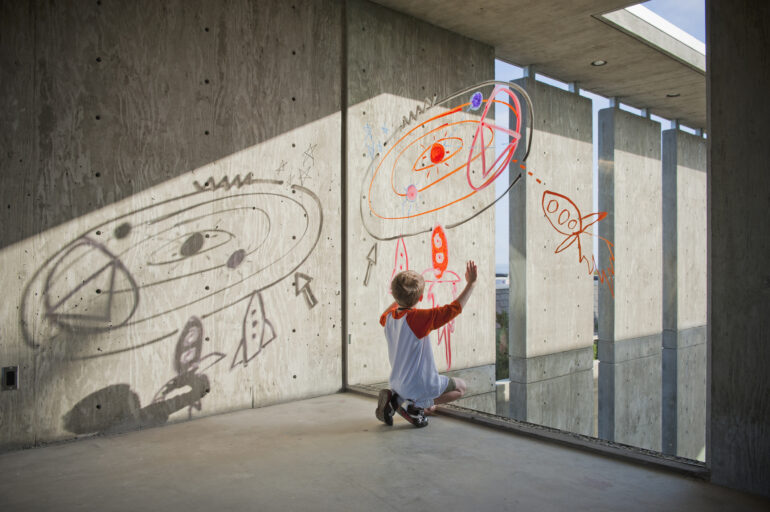In 1996, I wrote a book called Gifted Children: Myths and Realities, and ever since then parents have written to me either to say “You described my child exactly!” or to ask “How can I tell if my child is gifted?”
Most parents want to think of their children as gifted. Most teachers want to think of all of their students as gifted, at least in some way.
I have written a number other articles on gifted children, including children gifted in school smarts (e.g., high IQ kids) as well as those gifted in the visual arts, music, and acting. Since 1973, I have been a researcher at Harvard Project Zero where I helped develop Arts PROPEL, an approach to education in art, music, and imaginative writing emphasizing the importance of “process-folios” and reflection; and where I co-developed Studio Thinking, a new lens on the habits of mind students develop in visual arts classes.
Here are some of the things that I tell parents and teachers about giftedness.
What Does ‘Gifted’ Actually Mean?
When we think about gifted children, we tend to think about kids with school smarts — kids who read early and well, who catch on quickly to math concepts, who seem to remember everything, and/or who are articulate from a young age.
But kids can be gifted in other ways as well — in music, visual art, spatial thinking, sports, or chess, for example. Some might show strong interpersonal skills and be highly empathetic.

Our research has shown that children in drama classes, for example, show heightened empathy and understanding of others’ perspectives. Others might ask “big” questions, like “why was I born?” or “What is death?” — and, more revealing, listen carefully to the answers and follow up with more questions.
Just as we understand that human beings have different forms of intelligence, we appreciate that we can also display different forms of giftedness. And, as is the case with kinds of intelligence, giftedness in one area is not necessarily associated with giftedness in any other area, as I discuss in this article.
What Are Typical Characteristics of a Gifted Child?
No matter what the area (or areas) of high ability, research shows that gifted children are alike in three ways:
First, they do things earlier than most other kids. They are precocious.
Second, they do things their own way — they march to their own drummer and need little adult help to progress in their area of ability — they practically teach themselves.

Third, and in my mind most revealing, they show a “rage to master,” a passion for doing what they are good at. Kids gifted in reading will read at the dinner table if allowed, read in bed, and read at home while other kids are outside playing. Kids gifted in drawing want to draw all the time, and if they invite a friend over, they may have really invited that friend to draw with them, or even pose for them for a drawing. Kids gifted in math turn everything into a numbers game — You were born in 1978 and I was born in 2015, so how many years older are you? Your license plate is 1247 — and the next number has to be… 11 — do you see why? (Hint—look at the addend between each additional number).
If your child fits these criteria, they are likely gifted… in one or possibly more than one area/activity/form of thinking/intelligence.
To Test or Not to Test?
Should you get your child tested? I am asked this a lot, always with respect to school-type giftedness — probably because we have tests for school smarts (IQ tests) but no tests for other kinds of gifts. My answer to this question is “Only if a test score is needed for admission to some special program.” Otherwise, there is no need. If the test came back “average,” you would not believe the score, because you have seen what your child can do. Trust your own intuitions and observations! Or — if you are not confident in your own assessment, have a few knowledgeable adults observe your child.
I Have a Gifted Child — Now What?
If your child is school-smart gifted, what should you do about it and what can your child’s teacher do about it?
First, pay attention to whether your child is challenged in school or just plain bored because it is too easy. It’s not good for kids to go unchallenged in school — boredom leads to dislike of school, to tuning out, and even to disruptive behavior.
Talk to your child’s teacher, and don’t get put off by being told “All kids are gifted,” or “Why are you pushing your child? Why not let her have a normal childhood?” In this article, and in this one, I have suggested several things that teachers can do for such children.
Insist that your child be given individual work in her area of high ability that is up to her level. If that does not happen, at least find stimulating afterschool activities — robotics classes at the science museum, book clubs, debate clubs, math clubs. Try to find at least one child who is like your child, even if that child is gifted in a different area — this way your child will not feel so different from other kids. Or, if it proves possible, find an older child or adolescent who might enjoy working with your child — and vice versa.
Of course, some children are what we call “prodigies” — performing at a near adult level by the time they are 10 or 11. We have all heard of such children — they speak in sentences at 12 months of age; they start to read by age 2; they teach themselves algebra by age 6, and calculus by age 8. These kids really don’t fit into school as we know it — schools are structured for typical children, and these children are off the charts. Often parents have to resort to home schooling such children, or finding special schools (and these are rare) for academically gifted children or, perhaps, for children gifted in the arts or in sports. It is important to realize even children who are extraordinarily gifted in a certain area do not necessarily go on in that area as adults, as I discuss in this article, as well as in two articles about giftedness in the visual arts.
The Takeaways
The good news: As children grow older, they get to choose their own environments. Kids in high school can elect AP courses. They can apply to selective colleges and universities — or even take courses at a local institution of higher learning while in high school.
But it is in the elementary and middle school years that parents need to be most alert to make sure that their high-ability child is getting what she needs to continue to love learning… and, ultimately, to make an appropriate contribution to the broader society.
How to Help
Project Zero is an education research group founded in 1967 located at the Harvard Graduate School of Education. Funded only by grants and gifts, Project Zero develops educational frameworks, which have been adopted by educators all over the world, to promote thinking and understanding. Donate today to support this work.


Ellen Winner is Professor Emerita of Psychology at Boston College and Senior Research Associate at Project Zero. She has authored five books–Invented Worlds: The Psychology of the Arts (1982), The Point of Words: Children’s Understanding of Metaphor and Irony (1988), Gifted Children: Myths and Realities (1996), How Art Works: A Psychological Exploration (2019), and An Uneasy Guest in the Schoolhouse: Art Education from Colonial Times to a Promising Future (2022), and has also co-authored five books: Studio Thinking: The Real Benefits of Visual Arts Education (2007), Studio Thinking 2 (2013), Studio Thinking 3 (2022), Studio Thinking from the Start: The K-8 Art Educator’s Handbook (2018), and The Child as Visual Artist (2022). She was the editor of the Arts PROPEL handbooks and PI of the Reviewing Education and the Arts Project (REAP). She is currently investigating the impact of Project Zero’s many educational frameworks and tools developed since the founding pf Project Zero in 1967.
She has served as President of APA’s Division 10, Psychology and the Arts in 1995-1996, and received the Rudolf Arnheim Award for Outstanding Research by a Senior Scholar in Psychology and the Arts from Division 10 in 2000. She is a fellow of APA Division 10 and of the International Association of Empirical Aesthetics.
More from Better:
- ‘Synthesizing Minds’ and What It Means for Your Child, from Howard Gardner, Creator of Multiple Intelligences Theory
- 5 Education Tips and Insights from Purdue University President and Former Indiana Governor Mitchell E. Daniels, Jr.
- Can I Take Credit for my Kid’s Success? Mother of 5 Gets Real About Nature Vs. Nurture

